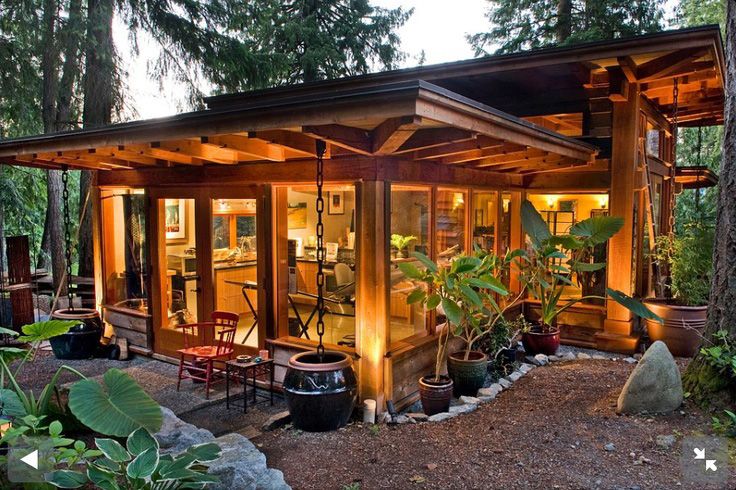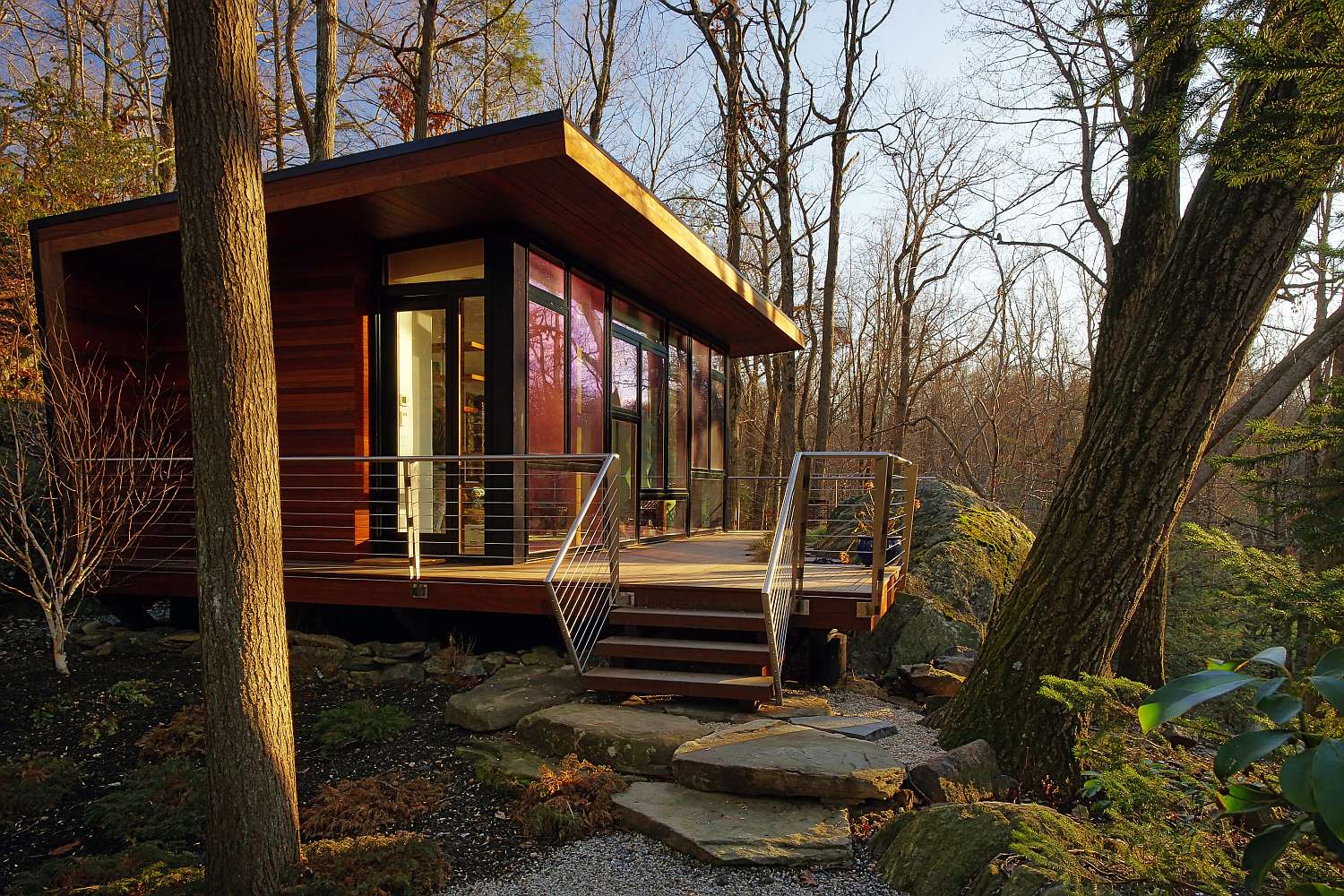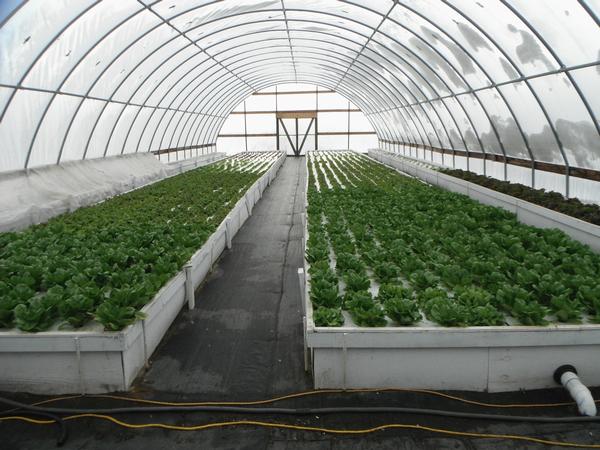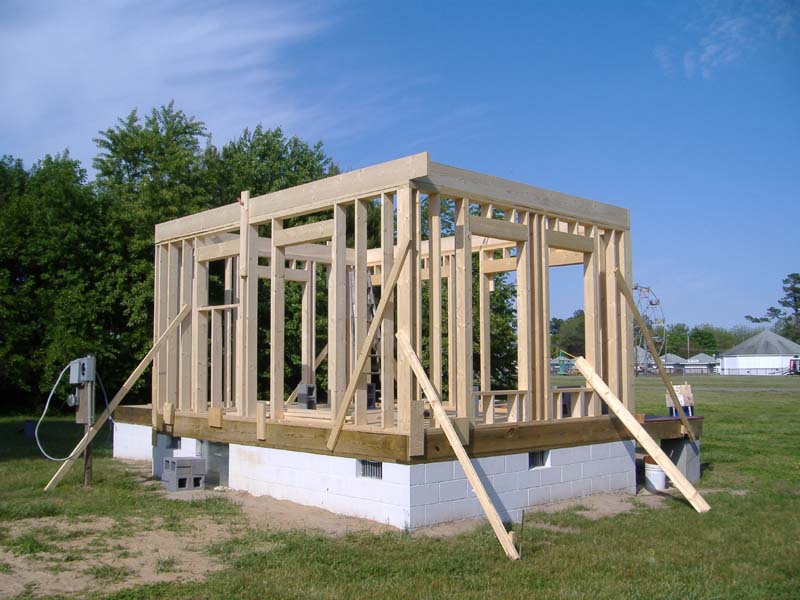It looks like you're using an Ad Blocker.
Please white-list or disable AboveTopSecret.com in your ad-blocking tool.
Thank you.
Some features of ATS will be disabled while you continue to use an ad-blocker.
9
share:
Some of you may remember a few of the older topics, posted this year, that go into detail on beginning a self sustaining commune. Although there are
only a handful of 'founders', we're aiming to open the gates to as many like-minded individuals as possible, in hopes of really forming a solid
community out of the project; with a focus on green-living, off-grid concepts, self sustainability, yet a comfortable surrounding that still maintains
the feel of modern/first-world society. (if you're interested in reading more, the first two topics can be found here:
Topic 1, Topic
2)

It's quite evident that the project, in it's current form, is extremely fragile, and subject to a number of complicated variables, all of which we readily acknowledge as serious hurdles. Nevertheless, in addition to planning for current obstacles, we want to continue to administer steady attention to future barriers that will inevitably exist within our path to this goal.
One of the greatest goals we can achieve in a small, tight-knit community, would be the cooperation and harmonization between every community resident. Everyone has experienced this dilemma, be it in school, family, or work, where one/few individual(s) seem to damage the experience/environment for the group as a whole.
So how do we get around this? The best way, we figure, is simply to have a rigorous and strict criteria in order to become a resident within the community; taking preventative measures avoid such a problem in the future.
Furthermore, the concept of living off-grid, living off the land, and living away from standard civilization can conjure a very romantic image within a lot of peoples minds. However, actually going through with it, and living in conditions that may not directly replicate those you have become accustomed to in modern society, or being required to work for and grow/create your own food/water and power, may simply be a lifestyle that seems viable and charming from an external perspective only, for some individuals. The last thing we want to do is have someone become infatuated by the idea, let them in, yet have them regret their choice shortly after.
We believe we can achieve these preventative measures simply through volunteer/paid on-site living. That would mean building additional homes within the community, specifically designed to help others really grasp what is involved in taking care of yourself, all within a community that's intrinsically designed to work as a group to help each other live.
~ The housing would be similar to the other houses with permanent residents already living within them (that would include size, appliances, waste management, food storage, and so forth)

~ ongoing education on the varying jobs and necessities within the community would also be a part of the process to help introduce aspiring residents (and also available to curious people wishing to learn, yet having no intent on becoming a permanent resident). Education would include the agricultural practices used in Aquaponics (the main source of food in the community)

~ construction safety and techniques (expansion on the Aquaponics farms, energy production, water purification, and so forth will be ongoing)

~ Basic Medical Procedures (a goal would be to have every resident be aware of how to deal with medical concerns so far away from civilization)

~ Cooking with restricted resources (restricted in comparison to a city), and so on.

At the moment, we're unsure of how long this form of introduction to this lifestyle would be required in order to really understand how well an individual/group/family can make the transition from standard living, to off-grid, community living would be. Although we're expecting several months, to a year, before we could really come to the conclusion. Of course, this is subject to change once we're made aware of better methods, or a more valuable approach.
So, if you were (or are) to form a similar community, where the goal is for everyone to work together in order to thrive, what steps would you apply to prospective community members to let them experience what life would be like within your community? Would you even have such steps? Or would your doors simply be open for all?
Thanks for reading

It's quite evident that the project, in it's current form, is extremely fragile, and subject to a number of complicated variables, all of which we readily acknowledge as serious hurdles. Nevertheless, in addition to planning for current obstacles, we want to continue to administer steady attention to future barriers that will inevitably exist within our path to this goal.
One of the greatest goals we can achieve in a small, tight-knit community, would be the cooperation and harmonization between every community resident. Everyone has experienced this dilemma, be it in school, family, or work, where one/few individual(s) seem to damage the experience/environment for the group as a whole.
So how do we get around this? The best way, we figure, is simply to have a rigorous and strict criteria in order to become a resident within the community; taking preventative measures avoid such a problem in the future.
Furthermore, the concept of living off-grid, living off the land, and living away from standard civilization can conjure a very romantic image within a lot of peoples minds. However, actually going through with it, and living in conditions that may not directly replicate those you have become accustomed to in modern society, or being required to work for and grow/create your own food/water and power, may simply be a lifestyle that seems viable and charming from an external perspective only, for some individuals. The last thing we want to do is have someone become infatuated by the idea, let them in, yet have them regret their choice shortly after.
We believe we can achieve these preventative measures simply through volunteer/paid on-site living. That would mean building additional homes within the community, specifically designed to help others really grasp what is involved in taking care of yourself, all within a community that's intrinsically designed to work as a group to help each other live.
~ The housing would be similar to the other houses with permanent residents already living within them (that would include size, appliances, waste management, food storage, and so forth)

~ ongoing education on the varying jobs and necessities within the community would also be a part of the process to help introduce aspiring residents (and also available to curious people wishing to learn, yet having no intent on becoming a permanent resident). Education would include the agricultural practices used in Aquaponics (the main source of food in the community)

~ construction safety and techniques (expansion on the Aquaponics farms, energy production, water purification, and so forth will be ongoing)

~ Basic Medical Procedures (a goal would be to have every resident be aware of how to deal with medical concerns so far away from civilization)

~ Cooking with restricted resources (restricted in comparison to a city), and so on.

At the moment, we're unsure of how long this form of introduction to this lifestyle would be required in order to really understand how well an individual/group/family can make the transition from standard living, to off-grid, community living would be. Although we're expecting several months, to a year, before we could really come to the conclusion. Of course, this is subject to change once we're made aware of better methods, or a more valuable approach.
So, if you were (or are) to form a similar community, where the goal is for everyone to work together in order to thrive, what steps would you apply to prospective community members to let them experience what life would be like within your community? Would you even have such steps? Or would your doors simply be open for all?
Thanks for reading
Good God your avatar picture is creepy. Is that you?
I've never lived on a commune, but I've visited a fair few. A lot of people go there with very idealistic dreams, but piss right off when they realise how much hard work is involved.
I've lived off grid, though not in a community. There were three of us living on 50 acres and we had several people come and stay for varying lengths of time, usually not very long. To be fair, it is nice when electric comes from a switch on the wall and you have flushing toilets (though when I lived off grid at another place, we actually had a flushing toilet, engineered by our mechanic buddy, it was the only flushing toilet for miles around and located amongst some trees, out in the open). Chopping firewood is another big one, chainsaws make things easier though. Some people think it's more romantic or whatever to use an axe, but when you're cutting wood every day to cook your dinner, you quickly develop an affinity for chainsaws.
I think too many people are too accustomed to luxury, they see it as a basic necessity. I guess in a way it is, given the nature of modern society, like even living off grid we still had to make trips into town for supplies and to check our emails. However it is a bit worrying that people seem to not have any idea what to do when the power goes out or they get hit by a natural disaster or whatever. I think it's important to know how to hunt, how to grow vegetables, how to build shelter, how to live without power and internet, etc. Because if war happens, or a natural disaster, where will we be?
The ones who know how to be self reliant will survive, while the others just get stuck at FEMA camps or whatever living on government made porridge. And we all know that porridge is basically poison.
Northern NSW in Australia is a really interesting place. A lot of people there live "alternative" lifestyles, and you'll old buses turned into homes, hand built homes that have to be legally called sheds to avoid building restrictions, various communes, even a big pyramid house (which was abandoned last time I saw it). Anything you can think of, you'll find it in northern NSW. Lots of people go and stay on communes or organic farms there, then go back to the city, and that's not necessarily a bad thing, because even if they ultimately choose internet over chopping firewood, they'll at least have learned some good skills.
I've never lived on a commune, but I've visited a fair few. A lot of people go there with very idealistic dreams, but piss right off when they realise how much hard work is involved.
I've lived off grid, though not in a community. There were three of us living on 50 acres and we had several people come and stay for varying lengths of time, usually not very long. To be fair, it is nice when electric comes from a switch on the wall and you have flushing toilets (though when I lived off grid at another place, we actually had a flushing toilet, engineered by our mechanic buddy, it was the only flushing toilet for miles around and located amongst some trees, out in the open). Chopping firewood is another big one, chainsaws make things easier though. Some people think it's more romantic or whatever to use an axe, but when you're cutting wood every day to cook your dinner, you quickly develop an affinity for chainsaws.
I think too many people are too accustomed to luxury, they see it as a basic necessity. I guess in a way it is, given the nature of modern society, like even living off grid we still had to make trips into town for supplies and to check our emails. However it is a bit worrying that people seem to not have any idea what to do when the power goes out or they get hit by a natural disaster or whatever. I think it's important to know how to hunt, how to grow vegetables, how to build shelter, how to live without power and internet, etc. Because if war happens, or a natural disaster, where will we be?
The ones who know how to be self reliant will survive, while the others just get stuck at FEMA camps or whatever living on government made porridge. And we all know that porridge is basically poison.
Northern NSW in Australia is a really interesting place. A lot of people there live "alternative" lifestyles, and you'll old buses turned into homes, hand built homes that have to be legally called sheds to avoid building restrictions, various communes, even a big pyramid house (which was abandoned last time I saw it). Anything you can think of, you'll find it in northern NSW. Lots of people go and stay on communes or organic farms there, then go back to the city, and that's not necessarily a bad thing, because even if they ultimately choose internet over chopping firewood, they'll at least have learned some good skills.
a reply to: DeepThoughtCriminal
There's also a lot of petty politics, group mentality and elitism that goes on up there too.. Why even bother going without basic luxuries, if you've just got to put up with the same nonsense that is main stream society?
North Eastern NSW really crushed the idealistic perspective I had about the alternative/hippy lifestyle.
Northern NSW in Australia is a really interesting place. A lot of people there live "alternative" lifestyles, and you'll old buses turned into homes, hand built homes that have to be legally called sheds to avoid building restrictions, various communes, even a big pyramid house (which was abandoned last time I saw it). Anything you can think of, you'll find it in northern NSW.
There's also a lot of petty politics, group mentality and elitism that goes on up there too.. Why even bother going without basic luxuries, if you've just got to put up with the same nonsense that is main stream society?
North Eastern NSW really crushed the idealistic perspective I had about the alternative/hippy lifestyle.
originally posted by: DeepThoughtCriminal
Good God your avatar picture is creepy. Is that you?
Yes. A perfect representation
originally posted by: DeepThoughtCriminal
Lots of people go and stay on communes or organic farms there, then go back to the city, and that's not necessarily a bad thing, because even if they ultimately choose internet over chopping firewood, they'll at least have learned some good skills.
We've considered this to be a likelihood for the majority of people who decide to come to the community (if any do). However, we do welcome this kind of mentality, for as you've stated 'at least they have learned some good skills'.
A large concept for our project is to show that you can live sustainable, with a massively reduced ecological footprint, yet still maintaining most of the modern technology, amenities, and features that you would have in city living.
We could most definitely attempt a format that caters to minimalism, in every sense, however, I would say that the majority of people wouldn't ever consider doing such a thing. With our concept, we want to be able to entice others to use self sustaining systems and Eco-friendly power generation. Even if they don't feel like they are up to moving out of the city, a lot of our ideas can still be implemented within one, and reduce energy/resource use age, save money, and live in a more healthy manner
The problem is that you'd have to be pretty ruthless in the rules of the community and they need to be clear on pretty much everything and if theres a
question that slips by how will it be answered such as X has a severely disabled child and will need to spend 95% of their time caring for the child
in hospital will they be allowed back since they'll be spending a lot of time caring for that child and not helping the community very much and what
happens if the father is the only electrician on the site and put looking after their child first?
One good trick is to buy tools/specialist kit as a group as they then belong to the group and at worst its only a small payment to buy them out so you don't have the carpenter leave due to an argument and you find the most subtle wood working tool you have is dynamite.
One good trick is to buy tools/specialist kit as a group as they then belong to the group and at worst its only a small payment to buy them out so you don't have the carpenter leave due to an argument and you find the most subtle wood working tool you have is dynamite.
a reply to: Ghost147
Dude, that was a painful read. Condense it. I'm on board with the idea, but seriously cut it down.
You typed a TON but didn't really say much. That first picture, that would probably cost over $500 a sq. ft.
Dude, that was a painful read. Condense it. I'm on board with the idea, but seriously cut it down.
You typed a TON but didn't really say much. That first picture, that would probably cost over $500 a sq. ft.
edit on 1820151220151 by Domo1 because: (no reason given)
Nicole Kidman.
Carrie Fisher (1980 version).
Chuck Norris.
Professor Brian Cox.
Percy Thrower.
Mary Berry (for cake).
A few of my young minions from work.
And me dear old Ma to keep em all in line.
Carrie Fisher (1980 version).
Chuck Norris.
Professor Brian Cox.
Percy Thrower.
Mary Berry (for cake).
A few of my young minions from work.
And me dear old Ma to keep em all in line.
originally posted by: Maxatoria
The problem is that you'd have to be pretty ruthless in the rules of the community and they need to be clear on pretty much everything and if theres a question that slips by how will it be answered such as X has a severely disabled child and will need to spend 95% of their time caring for the child in hospital will they be allowed back since they'll be spending a lot of time caring for that child and not helping the community very much and what happens if the father is the only electrician on the site and put looking after their child first?
One good trick is to buy tools/specialist kit as a group as they then belong to the group and at worst its only a small payment to buy them out so you don't have the carpenter leave due to an argument and you find the most subtle wood working tool you have is dynamite.
Very good points.
We've actually already discussed the scenario you mentioned in the second paragraph, and yes, we would be making purchases like you've listed as a group. There are various different legal issues that come in to play that may help with a scenario like that. Such as listing the project as a nonprofit organization, if we were to sell extra produce/fish/resources back to grocery stores/restaurants/farmers markets, and so forth.
As for your first paragraph, we're looking into a number of ways we could prevent such incidences from occurring, such as through health benefits, and generating a community account for 'rainy day' scenarios, built off the profits of the produce.
The larger the community, the less of a strain it becomes if one or two individuals are unable to work for a period of time. We're trying to make use of specific techniques and practices that need as little hands-on labor as possible (such as power, food, and clean water). In theory, we can reduce these things quite a bit, but of course, we still need to plan for the worst.
originally posted by: Domo1
a reply to: Ghost147
Dude, that was a painful read. Condense it. I'm on board with the idea, but seriously cut it down. You typed a TON but didn't really say much.
Sorry, I try to give as much detail as possible to prevent any misunderstandings. I'll try to keep it more brief in the future.
originally posted by: Domo1
a reply to: Ghost147
That first picture, that would probably cost over $500 a sq. ft.
That would depend on where you got your materials from and who is building it. A lot of the wood we'll be using is from the land we'll have itself, and we have a number of techniques to cut costs without reducing quality. We're building all of the community structures ourselves as well (all of us have different construction backgrounds). So we're not terribly worried about the cost (explained in more detailed in Topic 1, posted in the OP)
a reply to: Ghost147
Building an off-grid comunity: Who would you let in?
Lots of issues here, depends on how long but some demographic things are
over all number
ages
gender ratio
gender ages
skills
expereince
wisdom
fitness
personality type
potential for renewal
Building an off-grid comunity: Who would you let in?
Lots of issues here, depends on how long but some demographic things are
over all number
ages
gender ratio
gender ages
skills
expereince
wisdom
fitness
personality type
potential for renewal
originally posted by: Azureblue
a reply to: Ghost147
Lots of issues here, depends on how long but some demographic things are
over all number
ages
gender ratio
gender ages
skills
expereince
wisdom
fitness
personality type
potential for renewal
Very good points. When you sate "potential for renewal" what precisely are you referring to?
a reply to: hopenotfeariswhatweneed
There are plenty of Communes that function perfectly fine throughout North america (and the rest of the world for that matter). Of course, the purpose of 'screening' individuals is the entire objective to weeding out those people can ruin the whole thing. The question is simply how to determine what type of mentality functions well within the community.
Another option for us is to build the aquaponics farms, with a total focus on production and sale of organic produce/fish/products, and having housing units strictly in the form of volunteer-work use. This would allow us to cut out the potential for that troublesome individual, and at the very least minimize their damage.
edit on 19/12/15 by Ghost147 because: (no reason given)
I love the general concept and wish you the very best of luck with it. I think though, that you're spot on about the fragility of such an enterprise.
Too small, and if the "wrong" person were to leave, the whole system freezes up in the absence of a critical skill. Too large, and it becomes
impossible to manage and govern.
My question would be: Is it strictly necessary to build a commune? What I mean by that is - perhaps a more diffuse setup would be easier to establish and get people interested in?
I think that our goals are probably in overall alignment, even if our methodologies and approach might be different.
www.abovetopsecret.com...
-=Vel=-
My question would be: Is it strictly necessary to build a commune? What I mean by that is - perhaps a more diffuse setup would be easier to establish and get people interested in?
I think that our goals are probably in overall alignment, even if our methodologies and approach might be different.
www.abovetopsecret.com...
-=Vel=-
a reply to: Velociryx
very interesting concept. However, I'm not totally sure how practical it is. From the posts I read (admittedly, not the entire topic), there seems to be a fundamental flaw in it, which is the intrinsic need for the player to spend an excessive amount of money outside of the game, and the costs of materials and such being subjective to their global location/economy/available products.
Gaming has real-world uses already. There were doctors that posted a game not too long ago where Gamers solve puzzle which stumped scientists for years and could hold key to curing AIDS. And (as you mentioned in your topic) World of Warcraft inadvertently allowed researchers to study pandemics in one of their older patches where a plague affected players, and it became an in-game global catastrophe.
I believe that gaming is an incredible tool that can help with real world problems, and learning, However, your concept requires the player to spend far too much time, energy, and resources than they are used to. You may have touched up on that issue somewhere in your topic, though.
I would say that focusing on specific concepts per game would be a bit more viable. I'd have to read more into the topic before pointing out any obstacles definitively, however. Self reliance does seem to be our common goal, though
very interesting concept. However, I'm not totally sure how practical it is. From the posts I read (admittedly, not the entire topic), there seems to be a fundamental flaw in it, which is the intrinsic need for the player to spend an excessive amount of money outside of the game, and the costs of materials and such being subjective to their global location/economy/available products.
Gaming has real-world uses already. There were doctors that posted a game not too long ago where Gamers solve puzzle which stumped scientists for years and could hold key to curing AIDS. And (as you mentioned in your topic) World of Warcraft inadvertently allowed researchers to study pandemics in one of their older patches where a plague affected players, and it became an in-game global catastrophe.
I believe that gaming is an incredible tool that can help with real world problems, and learning, However, your concept requires the player to spend far too much time, energy, and resources than they are used to. You may have touched up on that issue somewhere in your topic, though.
I would say that focusing on specific concepts per game would be a bit more viable. I'd have to read more into the topic before pointing out any obstacles definitively, however. Self reliance does seem to be our common goal, though
Hey there, and thanks for taking a look! Believe me - when I first started out, I had no real money to play with, so that (the money thing) was the
first big issue that needed to be addressed. It has been in a few different ways, but primarily by providing all the blueprints and schematics (and
recommended sourcing for free materials) to accomplish everything.
To build on the "Agronomy" examples used in the posts on the topic, for example, we've provided 13 different sets of greenhouse blueprints, along with recommended freecycling and online classifieds (like CraigsList's free section) to source virtually all the building supplies needed to complete the Quests.
One of the first things I'll be doing here, in Virginia, as I set about building the first Holon, will be to stockpile those kinds of resources for players to use. Of course, if a player would rather just spend money instead of time, that's always a viable option, but in my experience, few would want to do that. Besides, sourcing the materials becomes a kind of "metagame" in and of itself.
Thanks for the read and the input!
-=Vel=-
To build on the "Agronomy" examples used in the posts on the topic, for example, we've provided 13 different sets of greenhouse blueprints, along with recommended freecycling and online classifieds (like CraigsList's free section) to source virtually all the building supplies needed to complete the Quests.
One of the first things I'll be doing here, in Virginia, as I set about building the first Holon, will be to stockpile those kinds of resources for players to use. Of course, if a player would rather just spend money instead of time, that's always a viable option, but in my experience, few would want to do that. Besides, sourcing the materials becomes a kind of "metagame" in and of itself.
Thanks for the read and the input!
-=Vel=-
I think one of the most interesting ideas you could think about would be viewing your community as a balanced whole, using a master/apprentice kind of
system. For example, you recruit key people with specific skillsets (e.g. carpentry, medicine, etc). Preferably the most skilled 2 or 3 people in each
area you can find. And from there, you seek out other people who perhaps have more niche or nice-to-have skills, but who are also willing to learn.
You assign everyone (except for masters or key administrative people) as apprentices for fixed amounts of time in each area of discipline, where they
assist the masters and learn as much as possible of that skill in the space of a month or so. Then everyone moves on to their next assignment, so
while most of your population isn't perhaps highly skilled in any given area, they all have a basic grounding of knowledge over time, that they've
learned in an intense training period. Once someone has gone through all the basic areas of expertise, you now have an idea what they have the most
aptitude for, and you have a populace where everyone is capable of core skills in an emergency, or in case of need.
a reply to: Inannamute
That's a very good idea, and we've actually been considering something similar.
It is definitely important to have everyone be as knowledgeable as possible about all the skills needed to pull this off, work together, and to prevent a collapse because a single individual is suddenly unable to do their job, or decides to leave the community.
The "master/apprentice" concept would work very well.
That's a very good idea, and we've actually been considering something similar.
It is definitely important to have everyone be as knowledgeable as possible about all the skills needed to pull this off, work together, and to prevent a collapse because a single individual is suddenly unable to do their job, or decides to leave the community.
The "master/apprentice" concept would work very well.
a reply to: Ghost147
They would have to be interviewed first, and by someone very good at reading people. People who were very polite and humble of heart would be allowed in.
Aggressive and snide folks would probably start trouble. Selfish attitudes can be easily spotted, and other traits by those with wisdom and life experience.
Of course anyone can be let in with a simple agreement and a warning which everyone could receive and agree to, and you probably wouldn't have too much trouble, but having low key but very able security response team wouldn't be a bad idea.
They would have to be interviewed first, and by someone very good at reading people. People who were very polite and humble of heart would be allowed in.
Aggressive and snide folks would probably start trouble. Selfish attitudes can be easily spotted, and other traits by those with wisdom and life experience.
Of course anyone can be let in with a simple agreement and a warning which everyone could receive and agree to, and you probably wouldn't have too much trouble, but having low key but very able security response team wouldn't be a bad idea.
a reply to: DBCowboy
I think though, that while people who have those skills are valuable, making sure they are creative thinkers are something you should consider too - it's all very well to be a skilled x/y/z when you have all the tools and resources of the modern world available, but what if you have to figure a solution to a problem in a different way? For example, someone who perhaps isn't fully versed in all of those things, but has done a lot of historical reading and has a lot of classic knowledge that they can apply in new ways might be more valuable than someone who just has regular skills. You can teach intelligent and creative thinkers anything and expect them to excel..
I think though, that while people who have those skills are valuable, making sure they are creative thinkers are something you should consider too - it's all very well to be a skilled x/y/z when you have all the tools and resources of the modern world available, but what if you have to figure a solution to a problem in a different way? For example, someone who perhaps isn't fully versed in all of those things, but has done a lot of historical reading and has a lot of classic knowledge that they can apply in new ways might be more valuable than someone who just has regular skills. You can teach intelligent and creative thinkers anything and expect them to excel..
new topics
-
WF Killer Patents & Secret Science Vol. 1 | Free Energy & Anti-Gravity Cover-Ups
General Conspiracies: 1 hours ago -
Hurt my hip; should I go see a Doctor
General Chit Chat: 2 hours ago -
Israel attacking Iran again.
Middle East Issues: 3 hours ago -
Michigan school district cancels lesson on gender identity and pronouns after backlash
Education and Media: 3 hours ago -
When an Angel gets his or her wings
Religion, Faith, And Theology: 4 hours ago -
Comparing the theology of Paul and Hebrews
Religion, Faith, And Theology: 5 hours ago -
Pentagon acknowledges secret UFO project, the Kona Blue program | Vargas Reports
Aliens and UFOs: 6 hours ago -
Boston Dynamics say Farewell to Atlas
Science & Technology: 6 hours ago -
I hate dreaming
Rant: 7 hours ago -
Man sets himself on fire outside Donald Trump trial
Mainstream News: 9 hours ago
top topics
-
The Democrats Take Control the House - Look what happened while you were sleeping
US Political Madness: 9 hours ago, 18 flags -
In an Historic First, In N Out Burger Permanently Closes a Location
Mainstream News: 11 hours ago, 16 flags -
A man of the people
Medical Issues & Conspiracies: 17 hours ago, 11 flags -
Man sets himself on fire outside Donald Trump trial
Mainstream News: 9 hours ago, 9 flags -
Biden says little kids flip him the bird all the time.
Politicians & People: 9 hours ago, 9 flags -
Michigan school district cancels lesson on gender identity and pronouns after backlash
Education and Media: 3 hours ago, 6 flags -
Pentagon acknowledges secret UFO project, the Kona Blue program | Vargas Reports
Aliens and UFOs: 6 hours ago, 6 flags -
Israel attacking Iran again.
Middle East Issues: 3 hours ago, 5 flags -
WF Killer Patents & Secret Science Vol. 1 | Free Energy & Anti-Gravity Cover-Ups
General Conspiracies: 1 hours ago, 5 flags -
Boston Dynamics say Farewell to Atlas
Science & Technology: 6 hours ago, 4 flags
active topics
-
Israel attacking Iran again.
Middle East Issues • 25 • : charlest2 -
Michigan school district cancels lesson on gender identity and pronouns after backlash
Education and Media • 8 • : TheMichiganSwampBuck -
I Guess Cloud Seeding Works
Fragile Earth • 29 • : Justoneman -
Man sets himself on fire outside Donald Trump trial
Mainstream News • 40 • : Vermilion -
When an Angel gets his or her wings
Religion, Faith, And Theology • 5 • : randomuser2034 -
Anyone one else having Youtube problems
Computer Help • 11 • : charlyv -
The Democrats Take Control the House - Look what happened while you were sleeping
US Political Madness • 68 • : Mahogani -
Candidate TRUMP Now Has Crazy Judge JUAN MERCHAN After Him - The Stormy Daniels Hush-Money Case.
Political Conspiracies • 404 • : Zanti Misfit -
In an Historic First, In N Out Burger Permanently Closes a Location
Mainstream News • 10 • : Degradation33 -
SC Jack Smith is Using Subterfuge Tricks with Donald Trumps Upcoming Documents Trial.
Dissecting Disinformation • 100 • : WeMustCare
9
